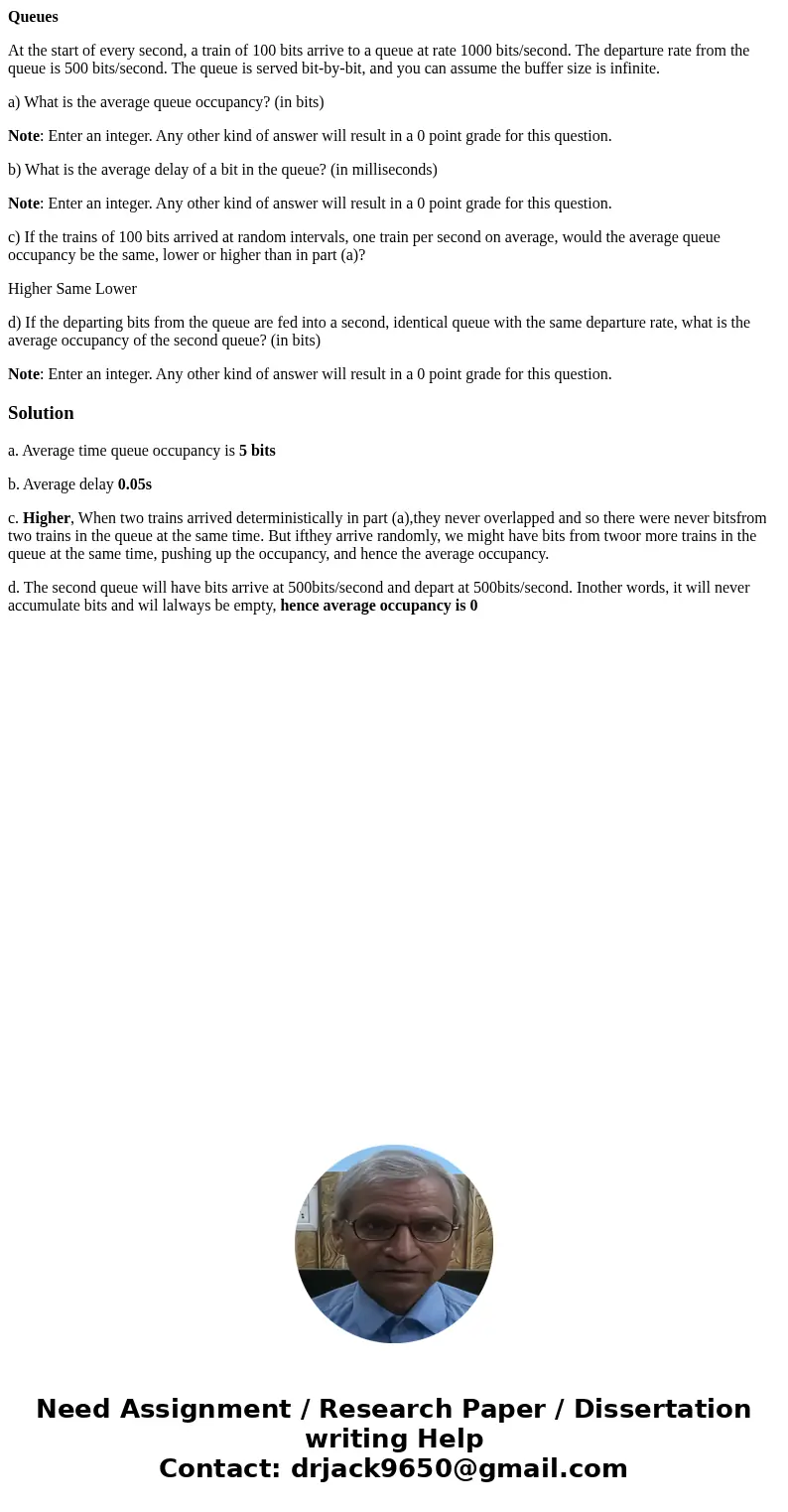Queues At the start of every second a train of 100 bits arri
Queues
At the start of every second, a train of 100 bits arrive to a queue at rate 1000 bits/second. The departure rate from the queue is 500 bits/second. The queue is served bit-by-bit, and you can assume the buffer size is infinite.
a) What is the average queue occupancy? (in bits)
Note: Enter an integer. Any other kind of answer will result in a 0 point grade for this question.
b) What is the average delay of a bit in the queue? (in milliseconds)
Note: Enter an integer. Any other kind of answer will result in a 0 point grade for this question.
c) If the trains of 100 bits arrived at random intervals, one train per second on average, would the average queue occupancy be the same, lower or higher than in part (a)?
Higher Same Lower
d) If the departing bits from the queue are fed into a second, identical queue with the same departure rate, what is the average occupancy of the second queue? (in bits)
Note: Enter an integer. Any other kind of answer will result in a 0 point grade for this question.
Solution
a. Average time queue occupancy is 5 bits
b. Average delay 0.05s
c. Higher, When two trains arrived deterministically in part (a),they never overlapped and so there were never bitsfrom two trains in the queue at the same time. But ifthey arrive randomly, we might have bits from twoor more trains in the queue at the same time, pushing up the occupancy, and hence the average occupancy.
d. The second queue will have bits arrive at 500bits/second and depart at 500bits/second. Inother words, it will never accumulate bits and wil lalways be empty, hence average occupancy is 0

 Homework Sourse
Homework Sourse